16 Practical Skin and Hair Care Tips for Every Season
As the seasons change, so does the way we need to care for our skin and hair. From harsh winter winds to the humidity of summer, different weather conditions bring different challenges. Adjusting your skincare and haircare routine can help prevent damage and keep you feeling great all year long. These changes may seem small, but they can have a lasting impact on how you look and feel. Taking a proactive approach to your seasonal care is key to maintaining healthy skin and hair.
This post may contain affiliate links, which helps keep this content free. Please read our disclosure for more info.
Use a Humidifier During Winter
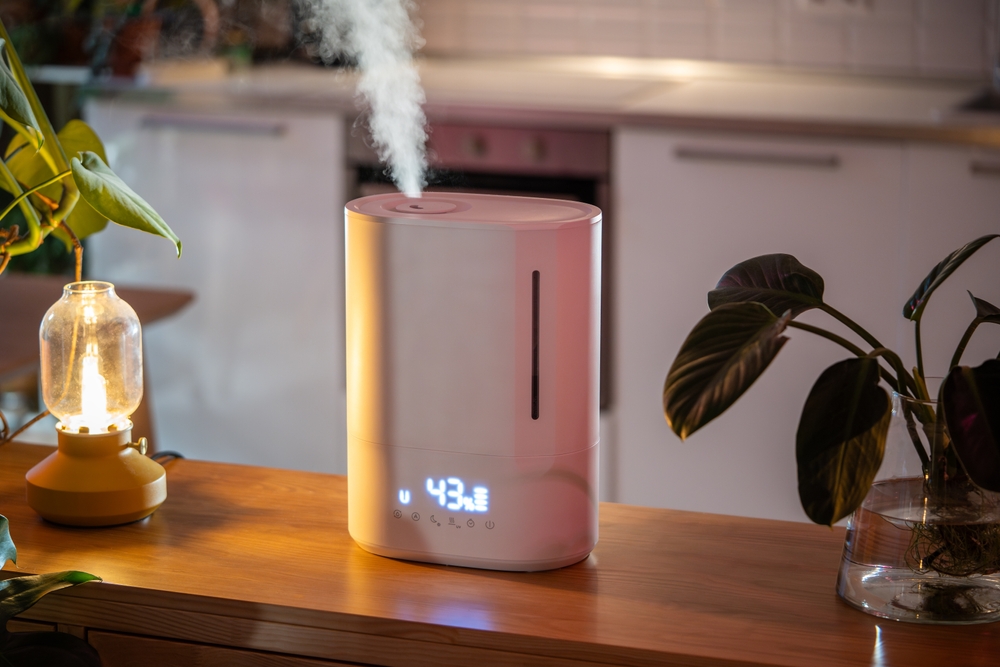
In the colder months, indoor heating can dry out the air, leading to dry skin and hair. Using a humidifier in your home helps to add moisture to the air, preventing dryness. This is especially helpful at night when your skin and hair have a chance to recover. By keeping the air moist, your skin will retain more hydration, and your hair will feel softer and look shinier.
A humidifier can be placed in your bedroom or living area for optimal results. It helps combat the dry air, which can cause irritation, flaking, and frizziness. It is a simple and effective way to improve your skin and hair’s overall health during winter. Consistent use of a humidifier will ensure that you are not fighting against the dry, indoor air.
Switch to a Richer Moisturizer in Winter

As temperatures drop, the skin tends to lose moisture more quickly, which can lead to dryness. Switching to a thicker, more hydrating moisturizer can help lock in moisture. Look for products with ingredients like shea butter, glycerin, or ceramides that help protect the skin’s natural barrier. Apply the moisturizer after a shower or bath to seal in hydration while your skin is still damp.
A richer moisturizer will prevent your skin from feeling tight or irritated. It is especially important to focus on areas like your face, hands, and elbows, where skin can become rough and cracked. By adjusting your moisturizer, you will keep your skin soft and smooth despite the cold weather. This small change can make a big difference in how your skin looks and feels.
Protect Your Skin from the Sun Year-Round

Even in winter, the sun’s harmful UV rays can damage your skin. Protecting your skin with sunscreen should be part of your daily routine, regardless of the season. Look for a broad-spectrum sunscreen with an SPF of 30 or higher. Apply it to exposed areas of your skin, such as your face and hands, every day, even when it is cloudy.
Sun protection is important to prevent premature aging and skin damage. UV rays can still cause harm on overcast days, so do not skip sunscreen during colder months. Using sunscreen year-round will help maintain your skin’s health and prevent unwanted wrinkles or dark spots. Make it a habit to include sunscreen as part of your morning routine.
Exfoliate Regularly to Remove Dead Skin Cells
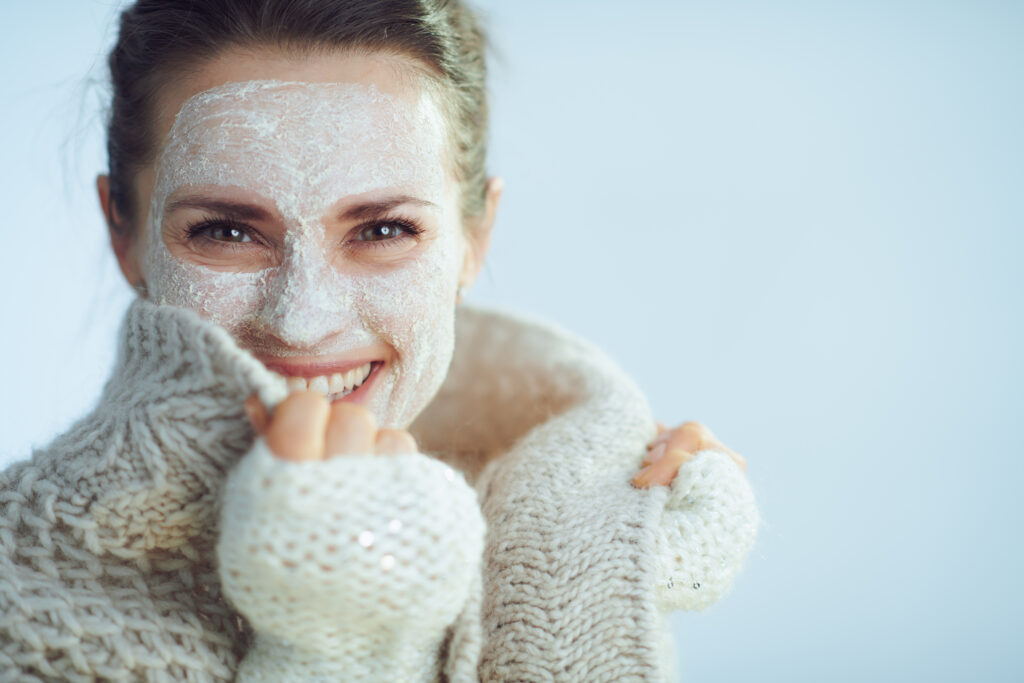
Exfoliation helps to remove dead skin cells that can accumulate, especially during the winter months. This buildup can leave your skin looking dull and feeling rough. Use a gentle scrub or exfoliating product once or twice a week to keep your skin smooth. Exfoliating also helps moisturizers absorb better, ensuring maximum hydration.
Regular exfoliation keeps your skin glowing by promoting cell turnover. It is essential to choose an exfoliant that suits your skin type, as harsh scrubs can irritate sensitive skin. Be gentle and avoid over-exfoliating, as this can strip your skin of its natural oils. The key is to keep your skin feeling refreshed and renewed without causing irritation.
Condition Your Hair Weekly
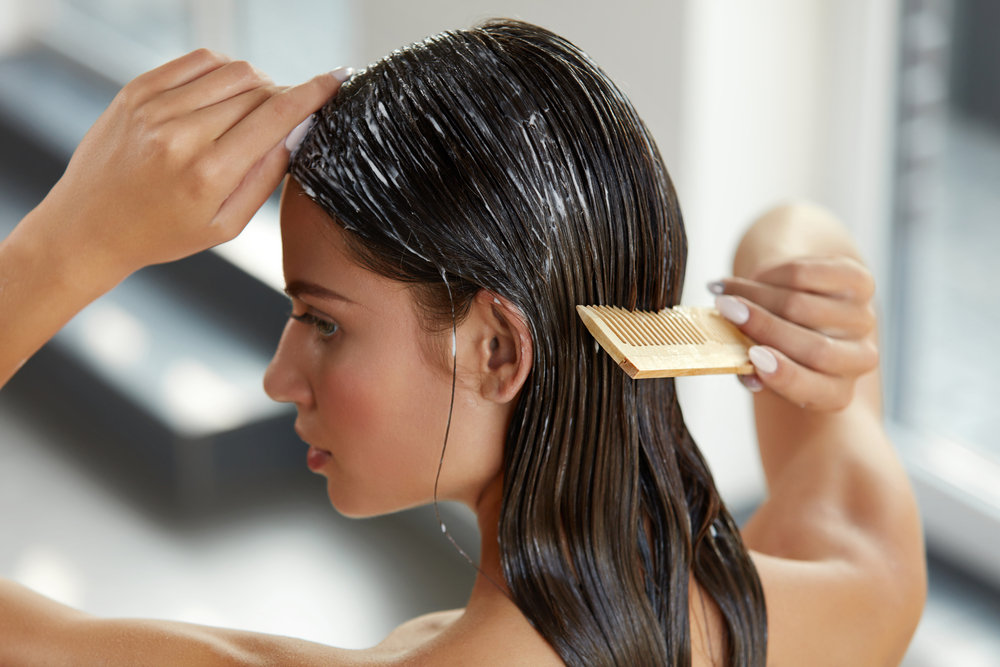
Dry winter air can make your hair feel brittle and dry, but conditioning treatments can restore moisture. Use a deep conditioning mask once a week to give your hair an extra dose of hydration. These masks often contain nourishing ingredients like argan oil, keratin, or avocado oil. Apply the mask generously to your hair, leave it on for about 15-30 minutes, and rinse thoroughly.
Conditioning your hair regularly helps prevent split ends and breakage. It is especially important for those with long or textured hair to keep it healthy throughout the colder months. This treatment will leave your hair looking shiny and feeling softer, even during harsh weather. It is a simple way to give your hair the care it needs and keep it looking its best.
Switch to a Silk Pillowcase for Healthier Hair
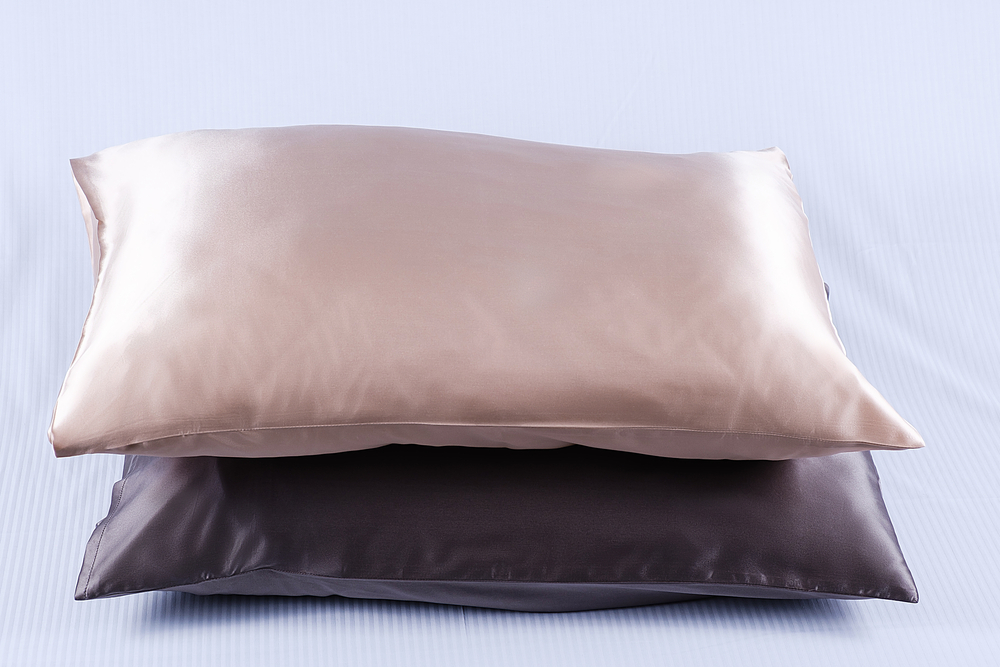
Sleeping on a silk pillowcase reduces friction on your hair, preventing breakage and frizz. Unlike cotton, silk allows your hair to glide smoothly, reducing the stress on your strands while you sleep. This small change can help keep your hair shiny and less prone to split ends. It also prevents tangling, making it easier to style your hair in the morning.
Silk pillowcases are especially beneficial for those with curly or textured hair, as they help maintain hair’s natural moisture. They also work well for reducing wrinkles on your skin by minimizing friction on your face. Silk pillowcases offer a simple solution for improving both your hair and skin health while you sleep. By making this swap, you can wake up with smoother, more manageable hair.
Stay Hydrated for Glowing Skin

Drinking plenty of water is essential for maintaining skin hydration throughout the year. When your body is well-hydrated, your skin will look plump and radiant, even during the colder months. Aim to drink at least eight glasses of water daily, and more if you are active. Proper hydration also helps maintain your skin’s elasticity and prevent dryness.
Water is vital for flushing out toxins and maintaining your skin’s moisture balance. While moisturizing products are important, they work best when paired with good hydration from within. Staying hydrated helps your skin stay supple and youthful, even in harsh conditions. Make it a point to keep a water bottle nearby to remind yourself to drink throughout the day.
Avoid Hot Showers to Protect Your Skin
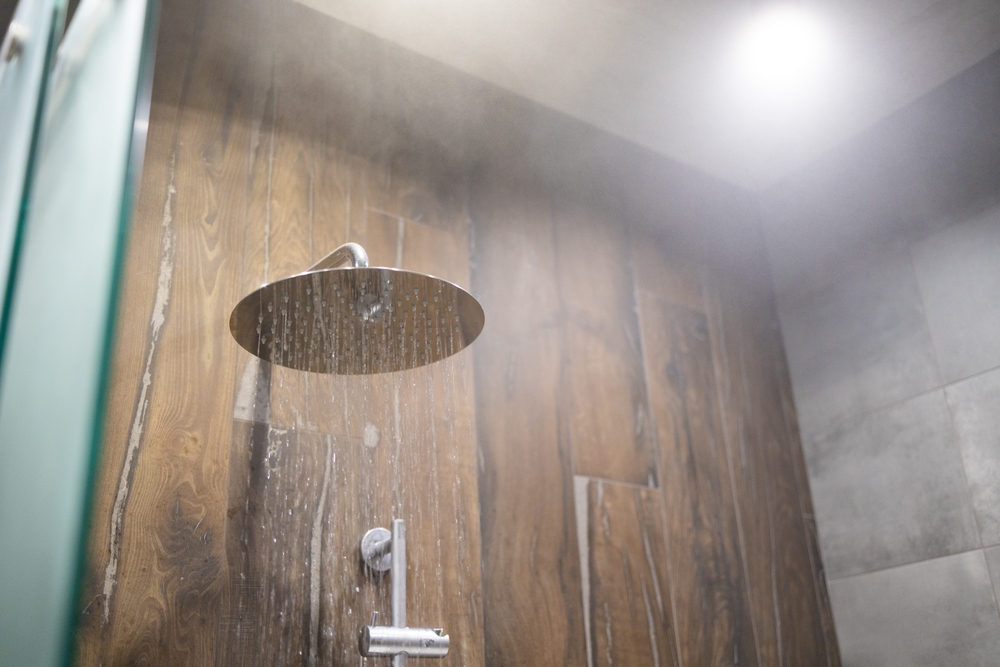
While hot showers can feel relaxing, they can strip your skin of its natural oils, leaving it dry and irritated. Try to take lukewarm showers, especially during the winter months, to help preserve your skin’s moisture. If you must take a hot shower, limit the time and immediately apply a moisturizer afterward to lock in hydration. Keeping your showers shorter and cooler can make a significant difference in maintaining soft, healthy skin.
Hot water can also weaken the hair cuticle, leading to dryness and frizziness. By opting for a lower temperature, you help protect your hair and skin from unnecessary damage. Avoiding overly hot water can prevent your skin from becoming red and inflamed. It is an easy change that can keep both your skin and hair feeling better.
Use Lighter Products in Warmer Weather
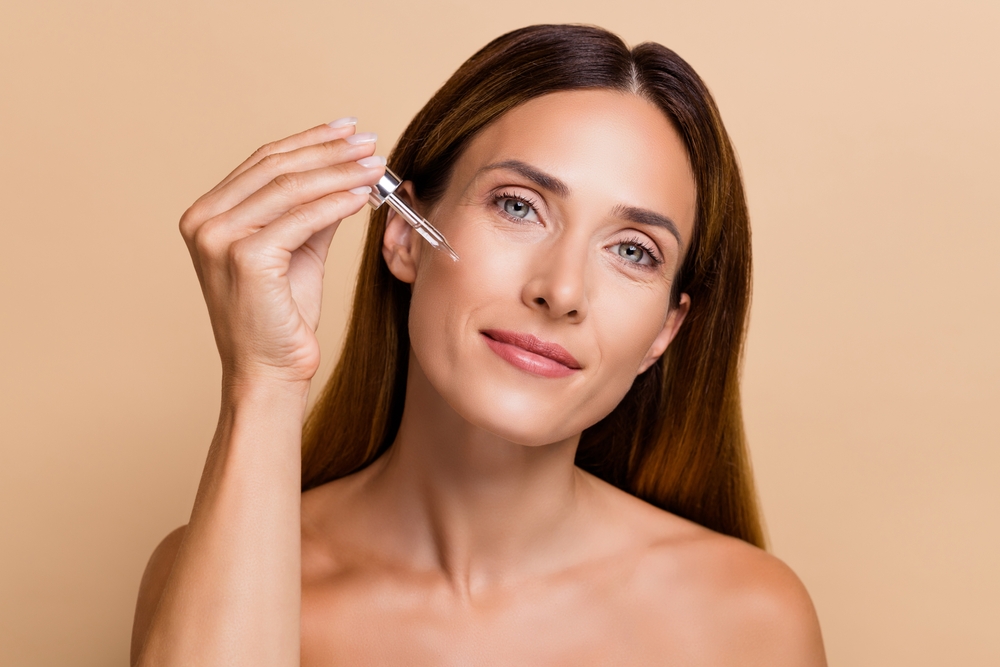
During the warmer months, lighter skincare products are often necessary to keep your skin from feeling greasy. Swap thick creams for gel-based moisturizers or hydrating serums that feel refreshing and light on the skin. These products provide just the right amount of moisture without weighing your skin down. Choose products that are oil-free if you have oily or combination skin.
In the warmer months, your skin tends to produce more oil, so lighter formulations can balance this excess. These lighter products are also great for preventing clogged pores and breakouts. When the weather warms up, make sure to adjust your skincare routine to prevent discomfort. This will help you maintain healthy skin, no matter the temperature.
Wear a Hat to Protect Your Hair from the Sun

Sun exposure can cause hair to become dry and brittle, especially in summer months. Wearing a hat can shield your hair from UV rays and prevent damage. Opt for hats made from breathable materials like cotton to keep your hair protected while still allowing air circulation. A wide-brimmed hat also protects your scalp, preventing sunburn or irritation.
Using a hat is an easy way to safeguard your hair from the sun’s harmful effects without sacrificing style. It helps maintain the moisture balance in your hair and keeps it looking smooth. This is especially important for those with color-treated or fine hair, as they are more prone to sun damage. Make it a habit to wear a hat during the hottest parts of the day to protect your hair and scalp.
Get Plenty of Sleep to Promote Skin Regeneration

Quality sleep is essential for skin and hair regeneration. When you rest, your body repairs and regenerates skin cells, helping to reduce dark circles and inflammation. Aim for seven to nine hours of sleep each night to allow your skin and hair to heal and recover. Proper sleep also supports healthy hair growth and helps your skin maintain a youthful appearance.
When you sleep, your skin has the chance to repair itself from the day’s environmental stressors. Sleep promotes the production of collagen, which helps maintain skin’s elasticity. Lack of sleep can lead to dull skin and weakened hair. Prioritize a good night’s rest for better-looking skin and stronger, healthier hair.
Trim Your Hair Regularly to Prevent Split Ends
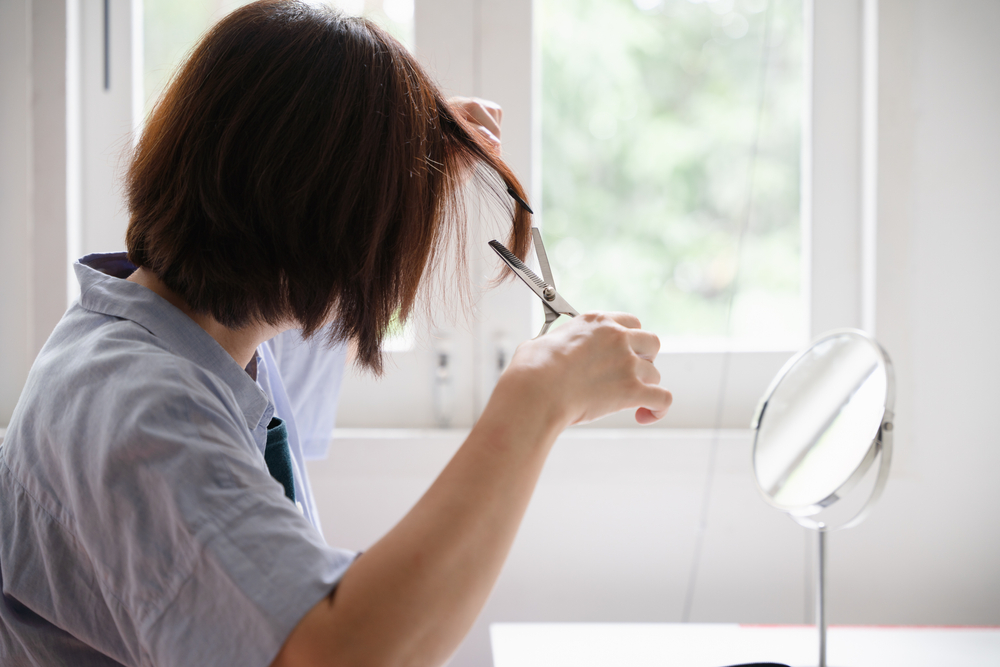
Regular hair trims are essential for maintaining healthy hair and preventing split ends. Even if you are trying to grow your hair out, trimming the ends every few months keeps your hair looking neat and reduces breakage. Trim your hair every six to eight weeks to keep it healthy and manageable. This simple step helps preserve your hair’s strength and ensures it looks fresh and vibrant.
Skipping regular trims can lead to dry, split ends that make hair appear frizzy and unhealthy. A trim helps to remove damaged or dead ends, promoting better hair growth and overall health. It is a small investment that pays off in healthier, shinier hair. Keeping your hair trimmed ensures it stays strong and easy to style.
Incorporate Healthy Fats into Your Diet

Healthy fats, like those found in avocados, nuts, and fish, are essential for healthy skin and hair. These fats provide the necessary nutrients for maintaining skin hydration and hair shine. Omega-3 fatty acids are particularly beneficial for keeping your skin soft and your hair thick. Incorporating these fats into your meals can have a noticeable impact on your skin and hair health.
Consuming healthy fats also supports the production of sebum, which helps keep hair moisturized. They play a key role in reducing inflammation and preventing dry, flaky skin. Including these fats in your diet can promote a radiant complexion and strong, shiny hair. For optimal results, make sure to eat a balanced diet with a variety of healthy fats.
Use Dry Shampoo Between Washes
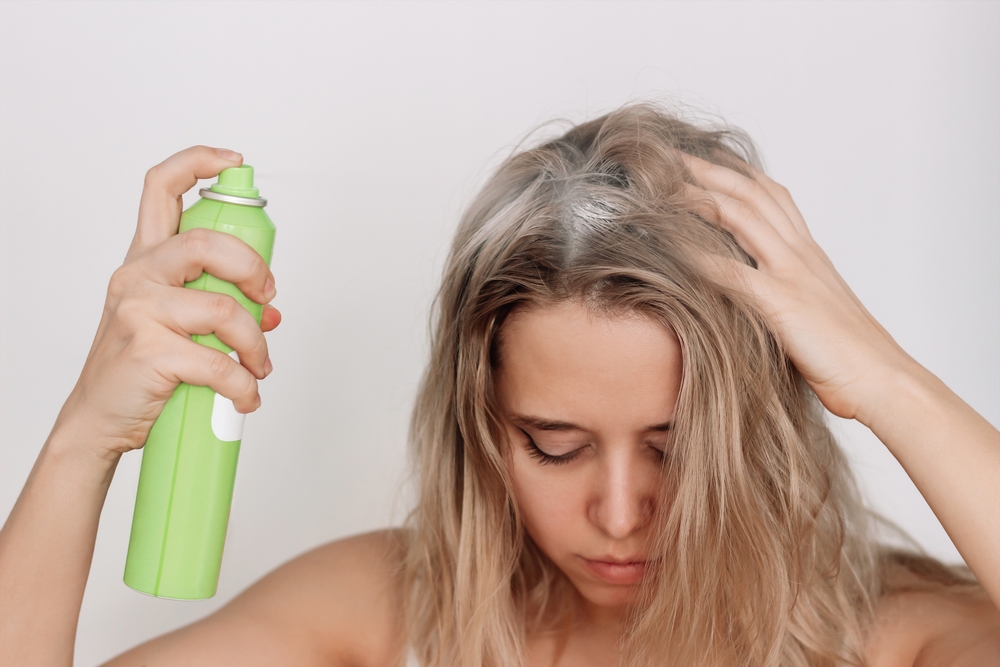
Dry shampoo is a great tool for maintaining fresh, clean hair between washes. It absorbs excess oil and adds volume, allowing you to extend the time between washes without compromising on cleanliness. Spray or sprinkle dry shampoo at the roots to give your hair a refreshed look. It is a convenient solution, especially on busy days when you need to save time.
Using dry shampoo regularly can prevent over-washing, which can dry out your hair. It also helps keep your hairstyle intact, adding texture and body. Dry shampoo is a quick fix for greasy hair, making it an essential product for those with an active lifestyle. It’s an easy way to keep your hair looking good without washing it too frequently.
Avoid Touching Your Face to Prevent Breakouts

Constantly touching your face can transfer dirt, oil, and bacteria, which can lead to breakouts. Try to avoid touching your face throughout the day, especially with unwashed hands. If you wear makeup, be sure to remove it thoroughly at night to keep your skin clean. By limiting contact with your face, you can help prevent clogged pores and skin irritation.
It is easy to forget about the importance of keeping your hands away from your face, but doing so can greatly reduce the risk of acne. Using a clean towel to dry your face or adjust your makeup can help minimize skin problems. Keeping your hands clean and avoiding unnecessary touching will help maintain clear, healthy skin. This simple habit can improve your overall complexion.
Switch to a Nourishing Shampoo in the Winter
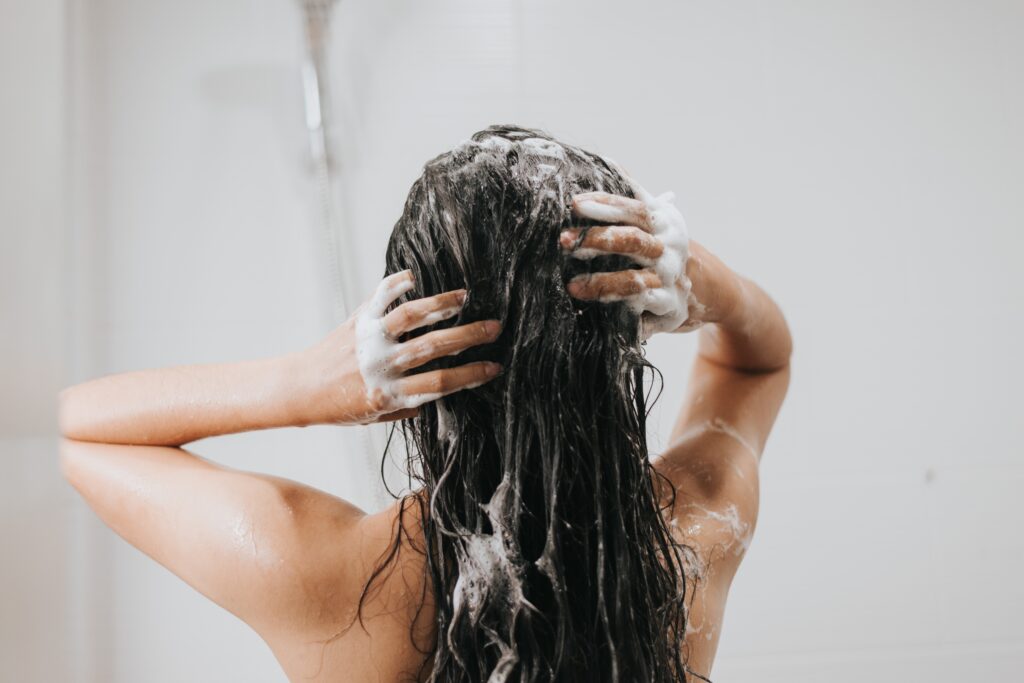
During colder months, the cold air can strip hair of its natural moisture, leaving it dry and brittle. Switching to a nourishing shampoo that provides extra moisture can help keep your hair soft and manageable. Look for shampoos with ingredients like argan oil or coconut oil that provide deep hydration. Regular use of a moisturizing shampoo helps to restore balance to dry, winter-worn hair.
Moisturizing shampoos work by replenishing the natural oils that are lost during colder months. This prevents hair from becoming frizzy and rough, especially in dry indoor air. They also help maintain the health of the scalp, which is essential for strong hair growth. A nourishing shampoo is a key part of keeping your hair looking healthy and hydrated all winter long.
Adapting your skin and hair care routine to the seasons is a great way to keep your body feeling its best. Small changes, like using moisturizing products in winter or protecting your hair from the sun, can make a big impact. Remember to listen to your skin and hair’s needs, and make adjustments as the seasons shift. Consistent care will help you maintain a natural, healthy glow throughout the year.
This article originally appeared on Avocadu.
